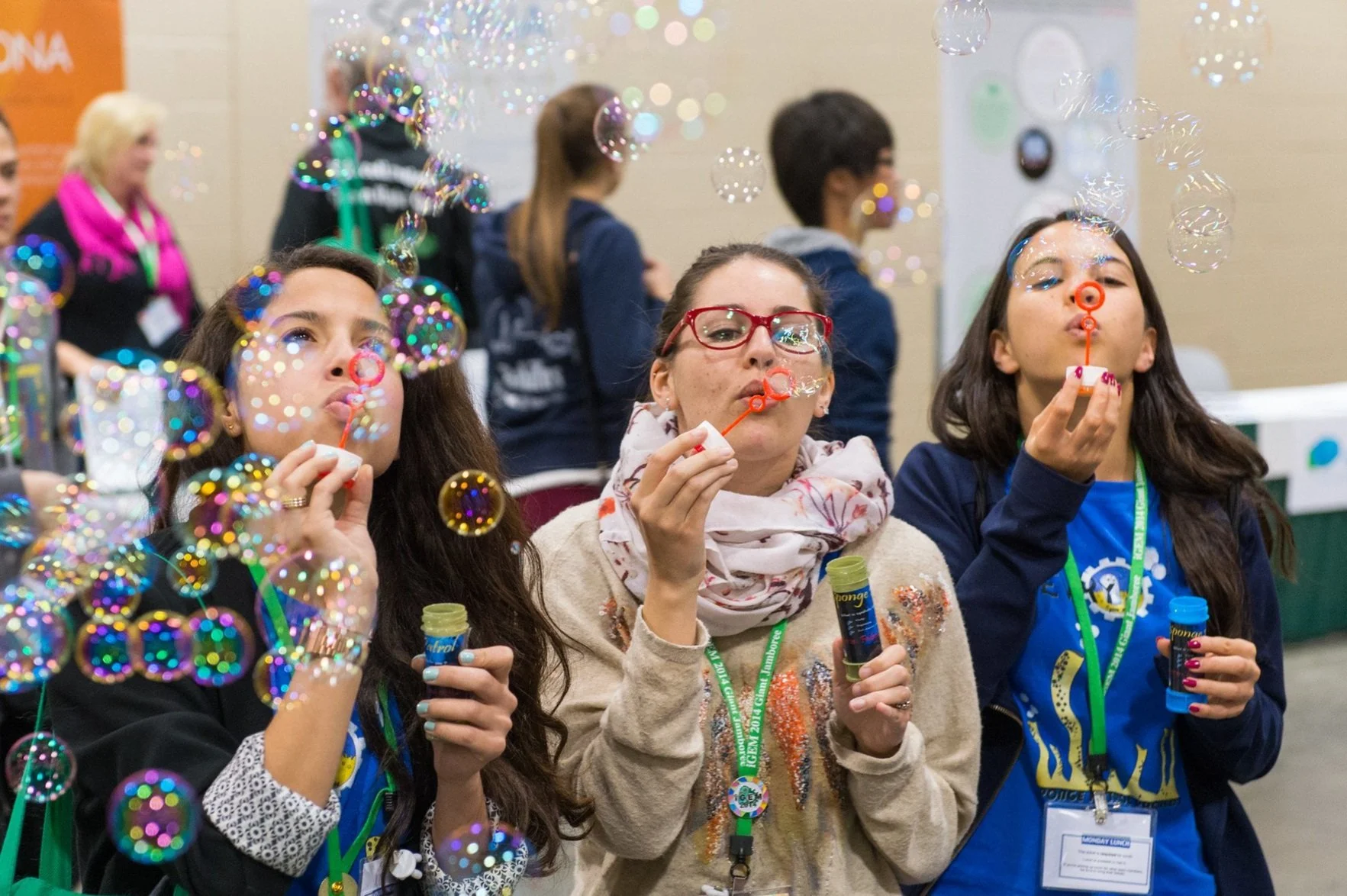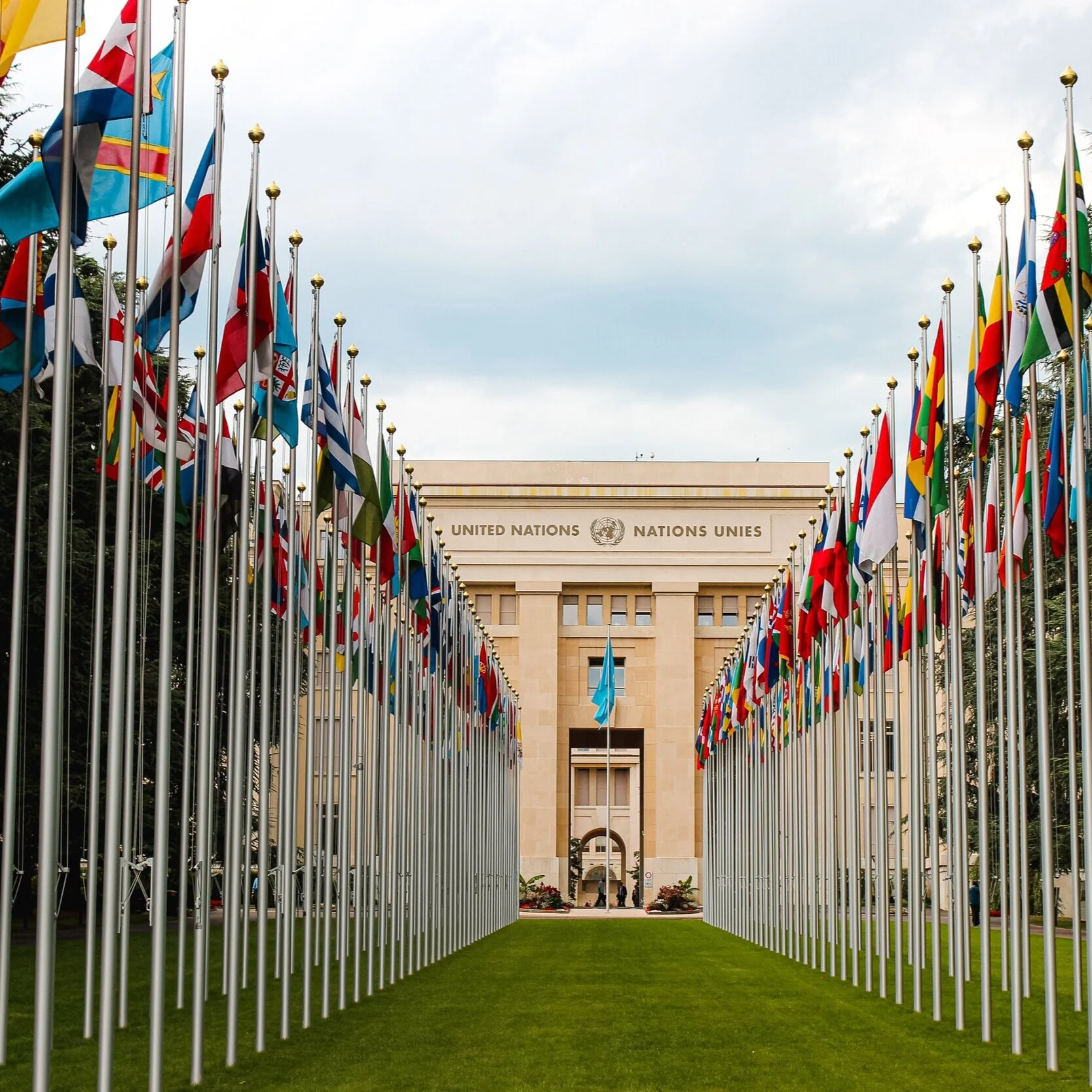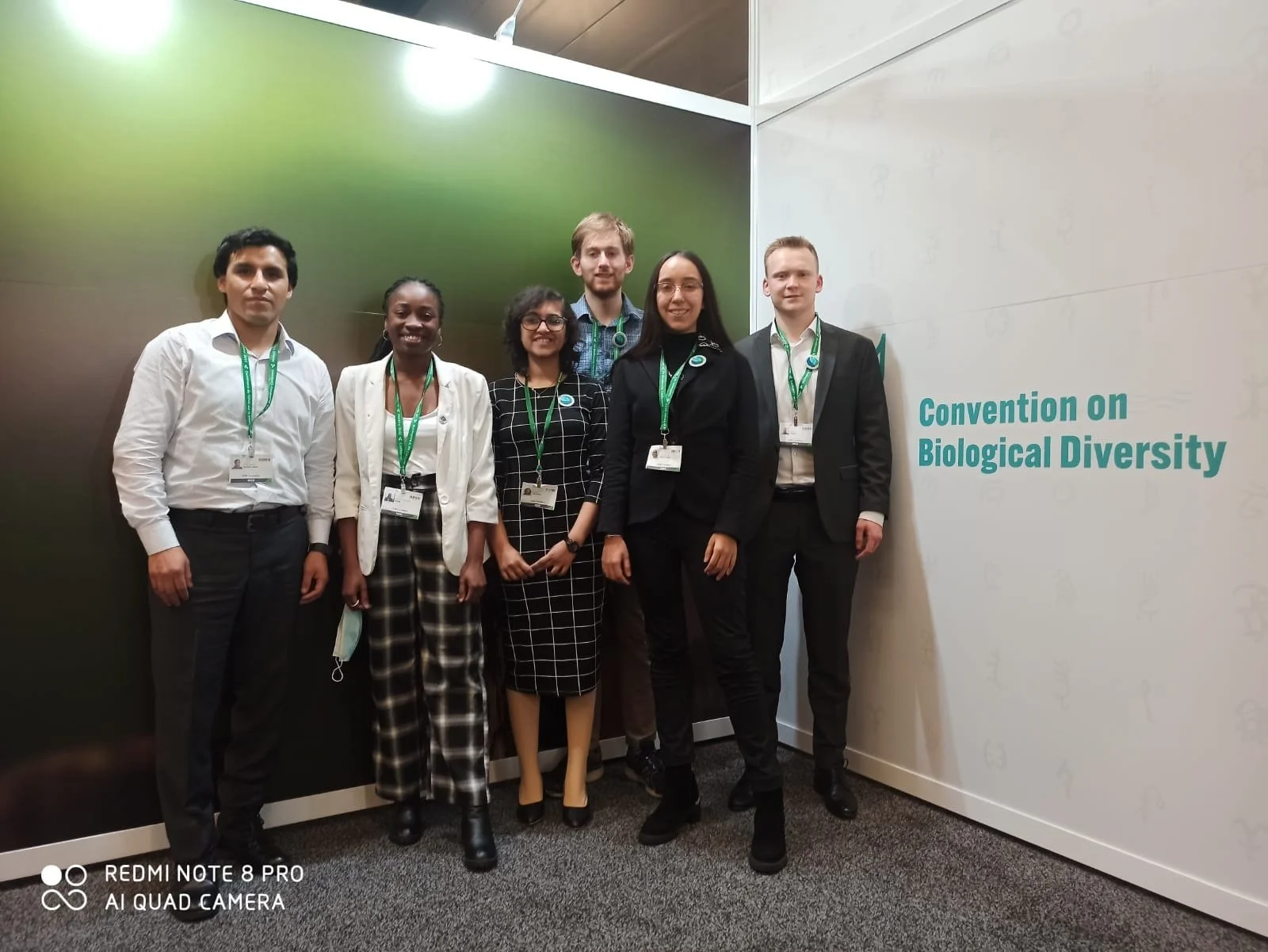Future leaders of synthetic biology bring their unique voices to the Ninth Review Conference of the Biological Weapons Convention
by Lucas Boldrini
on behalf of the iGEM Responsibility Program
“The world is very different today from the last time the Biological Weapons Convention considered the technical feasibility of verifying compliance. In 1993, computer use was not widespread, there was no internet as we know it, very few (if any) websites, and very few mobile phones. Our understanding of the life sciences and biotechnology was different too. It was considered a major breakthrough to express a green fluorescent protein in a worm―something now well within the grasp of high school students around the world.”
The first known use of biological weapons was the siege of Caffa in 1346¹. It was not until 1925 that the first international restrictions on biological warfare began with the Geneva Protocol. In 1975, the Biological Weapons Convention (BWC) was entered into force as a supplement to the Geneva Protocol. Considered the most important arms control treaty of the twenty-first century, the BWC bans the development, production, stockpiling, and transfer of biological weapons, as well as biological agents and toxins.
At iGEM², we think it’s essential for young synthetic biologists to think beyond their lab work, anticipating the impacts of their projects, assessing biosafety and biosecurity risks, dealing with dual use, building skills in stakeholder engagement, and otherwise embodying a culture of responsibility. We began the iGEM Delegates Program to provide opportunities for the iGEM community to participate in important events on scientific governance. Every five years, the States Parties to the BWC hold a Review Conference, where they make decisions about the future of the treaty. In 2017 and again in 2022, delegates from the iGEM community have participated in the BWC Review Conferences.
Here, we present the reflections of the iGEM delegates who brought their unique voices and participated in drafting the Youth Recommendations for the Ninth Review Conference of the BWC held in Geneva, Switzerland in 2022.
In 2022, iGEM brought 10 delegates to the Ninth Review Conference of the BWC held in Geneva, Switzerland, where they participated in drafting Youth Recommendations. iGEM Delegates from left to right: Shreyash Borkar
Abhay Menon, Gurpreet Dhaliwal, Ying-Chiang Lee, Sandra Matinyi, Yusha Araf, Malika Vassilova, Jose Andres Ardon, Alex Kyabarongo, Mary Elizabeth Adler
Abhay Menon (India)
“By attending presentations by leading experts in the field I was able to get a better understanding of what the BWC is really like. I found the lack of scientific talks surprising, and believe that discussing the science behind the latest surveillance methods could help different countries to develop their own methods.”
Alex Kyabarongo (Uganda)
“I was able to contribute to the BWC and shape its future, but also to learn the politics beyond science and the lab, and how it plays out to affect science research in general. Also, the role of youth in high level decision making. Drafting the Youth Recommendations was highly valuable to me, not only did it give me a chance to contribute to the proceedings at the BWC but also increased my teamwork skills, build my confidence in communication.”
Jose Andrés Ardon (Guatemala)
“iGEM is so unique and special because year after year it manages to widen the horizons of hundreds of people. We have the ability to positively influence people so they acquire awareness of the real and potential benefits that synbio holds for our future. I’m convinced that iGEM could have a significant impact on the Biological Weapons Convention through its delegation.”
Gurpreet Dhaliwal (United Kingdom)
“My experiences in iGEM instilled a sense of responsibility in me to innovate safely, cautiously and thoughtfully as a scientist. During discussions with other youth delegates at the BWC Review Conference, I think we all shared some frustration over how difficult international diplomacy could be. Intuitively I felt that international diplomacy was more important than ever.”
Ying-Chiang Lee (United States)
“There are no easy solutions to issues of international concern, especially one as existential as biological weapons and biosecurity, but that does not mean that we do not try. Drafting the Youth Recommendations was the most valuable to me – they allowed me to critically think, discuss, and engage in recommendations for the BWC that addressed an obvious gap. It was also encouraging to see some states announce that they were already doing what we were proposing.”
Malika Vassilova (Kazakhstan)
“The knowledge and experience I gained from attending sessions and drafting our recommendations, as well as establishing connections with experts from such a diverse pool were life changing for me. It was self-evident but still surprising to discover that coming to a consensus is a very challenging task to accomplish. I realized how important it is for youth to act as a steering wheel, a catalyzer of some sort pushing our representatives for a greater change.”
Mary Elizabeth Adler (United States)
“In my view, iGEM is one of the few organizations in the biology space that is a true champion of young aspiring scientists. I was surprised at the spontaneous and impromptu nature of the BWC Review Conference. I was really encouraged to meet such a high number of people who had chosen a very similar path to what I chose (hard science undergrad but interests in diplomacy and international security), which is not very common in more normal spheres.”
Sandra Matinyi (Uganda)
“The BWC Review Conference was a great place to learn of the incredible efforts by various stakeholders to ensure a safe and secure world for all of us. I learnt about the various challenges and issues facing the BWC implementation as well as the efforts by the international community towards the implementation of the BWC. For a world free of biological weapons, we all have a role to play to ensure the implementation of the BWC.”
Shreyash Pramod Borkar (from India, currently based in Singapore)
“In the coming biotech era, I believe it will be crucial to have strong gatekeepers in place to safeguard the responsible use of biological agents. The BWC Review Conference provided me with a basic understanding of the global policy framework and various terms and concepts related to diplomacy. The process of bringing together a diverse group of countries to reach agreement on complex issues is not an easy task, and it was interesting to see the work that goes into making this happen.”
Yusha Araf (Bangladesh)
“Drafting youth recommendations at the BWC Review Conference was one of the most valuable (experiences for) me. I really enjoyed the teamwork and got to know a lot of people from different NGOs. As a future policymaker, I aspire to solve many problems that have been purposefully or unwittingly caused by working on biosafety and biosecurity issues.”
We are proud of all the iGEM Delegates who brought their perspectives and experience in synthetic biology, enthusiasm to share their knowledge, and eagerness to learn and contribute to the Ninth Review Conference of the BWC!
iGEM’s Responsibility Program involves a range of efforts in risk management, education, field-building, research, and leadership. We invite you to check out our report on A Model Compliance Regime for the Biological Weapons Convention, developed from a workshop on this topic held by the iGEM Foundation at Wilton Park during March 2022.
If you would like to learn more about, or become a sponsor for, the iGEM Responsibility Program, please connect with us at responsibility [AT] igem [DOT] org.
Footnotes:
¹ Wheelis, Mark (2002). "Biological Warfare at the 1346 Siege of Caffa". Emerging Infectious Diseases. 8 (9): 971–975.
² The iGEM Foundation is an independent, non-profit organization dedicated to the advancement of synthetic biology. This is done by fostering an open, collaborative community, and friendly competition. iGEM Europe is our new location in Paris, providing better access to some of iGEM’s global regions, including Europe and Asia.













